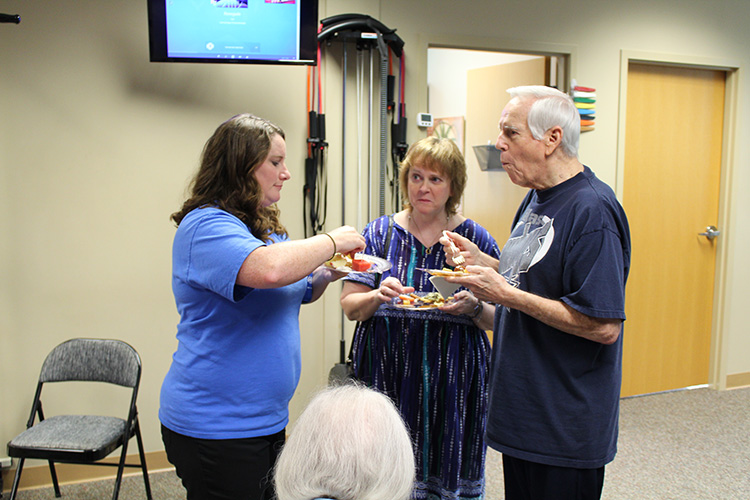Hydrococet Addiction Rehab Programs Java VA
Home
Top Hydrococet Addiction Rehab Programs Java VA Resources and Information Online
Hydrococet Addiction Rehab Programs Java VA
When you're using drugs, you're driven by this mystical black energy, a force inside you that just won't quit. The purpose of our drug help hotline is to find a thoughtful approach to recovery through our programs and services. Our programs can vary in length from 2 weeks and up to 2 years.
Tolerance to some drugs can happen within as little as a few weeks of frequent use. From many points of view, it masks a person’s true self, but who the user is inside can always be recovered, once sobriety dominates the demon of drugs.
Below are Some More Resources on Vicoprofen Detox Treatment Facility

A lot more Resources For Fioricet Detox Centers Java VA
They will create a personalized program to manage and treat your addiction.Begin Your Faith Based Recovery Speak to a Christian Recovery Specialist (800) 631-7753 Tour Our Christian Rehab Facility With the peaceful Pacific waters serving as our backdrop Celebrate Hope is nestled on the Southern California coast and provides the perfect setting for clients to focus on healing and become consumed by God’s infinite power. However, you’ll also be able to work on your relationship with Christ. You can expect to be heard, understood, supported, and helped. 1-800-327-5050 – Massachusetts Substance Abuse Information and Education Helpline Massachusetts Substance Abuse Information and Education is a hotline dedicated for alcohol/drug abuse incidents.
Even more Info About Fioricet Detox Centers
Typically, the treatment plans that are created will be 30 days or 60 days. Recreational use of marijuana is popular … Continue reading “Reborn at Christian rehab in Pennsylvania” Marijuana is the most frequently abused drug in Maine. Be encouraged, if you or your loved one is sick and tired of struggling with addiction, we are here to help; our Christian rehab centers are prepared to lead you back to your faith, and strengthen your relationship with Jesus Christ.
Below are Some More Info on Vicoprofen Detox Treatment Facility Java VA
It might be worth checking your computer for viruses with an antivirus utility such as CureIt from «Dr. This model lays much emphasis on the use of problem solving techniques as a means of helping the addict to overcome his/her addiction. The stifling darkness that people often find themselves in due to the destruction that drugs and alcohol have caused does not have to be a lasting darkness. Such approaches are the quintessential features of Twelve-step programs, originally published in the book Alcoholics Anonymous in 1939.[26] These approaches have met considerable amounts of criticism, coming from opponents who disapprove of the spiritual-religious orientation on both psychological[27] and legal[28] grounds. It is enabling them to continue their addiction without consequences. It has been argued, however, these findings may be attributable to the profound difference in therapist outlook between the two-factor and client-centered approaches, rather than to client-centered techniques per se.[31] The authors note two-factor theory involves stark disapproval of the clients' "irrational behavior" (p. 350); this notably negative outlook could explain the results. If you’re worried that a friend or loved one might be abusing drugs, look for the following warning signs: Physical warning signs of drug abuse or addiction Bloodshot eyes, pupils larger or smaller than usual Changes in appetite or sleep patterns Sudden weight loss or weight gain Deterioration of physical appearance, personal grooming habits Unusual smells on breath, body, or clothing Tremors, slurred speech, or impaired coordination Behavioral warning signs of drug abuse or addiction Drop in attendance and performance at work or school Unexplained financial problems; borrowing or stealing Engaging in secretive or suspicious behaviors Sudden change in friends, favorite hangouts, and hobbies Frequently getting into trouble (fights, accidents, illegal activities) Psychological warning signs of drug abuse or addiction Unexplained change in personality or attitude Sudden mood swings, irritability, or angry outbursts Periods of unusual hyperactivity, agitation, or giddiness Lack of motivation; appears lethargic or "spaced out" Appears fearful, anxious, or paranoid Warning signs of commonly abused drugs Marijuana: Glassy, red eyes; loud talking, inappropriate laughter followed by sleepiness; loss of interest, motivation; weight gain or loss. Many youngsters including high school students in the state of Maryland consume alcohol at a most disturbing frequency. Cognitive therapy[edit] An additional cognitively-based model of substance abuse recovery has been offered by Aaron Beck, the father of cognitive therapy and championed in his 1993 book Cognitive Therapy of Substance Abuse.[35] This therapy rests upon the assumption addicted individuals possess core beliefs, often not accessible to immediate consciousness (unless the patient is also depressed). Whatever the case, it’s important to include healing of the spirit in addiction recovery. Your life, everyone you’re hurting, everything you left behind, it all quiets down until you find this bottom, this moment of clarity.
Click Here for More Information
Previous Next
You may also like:
Ultram Addiction Rehab Clinics Pollocksville NC
Peyote Addiction Detox Oconomowoc WI
Tramadol Addiction Clinics Webster NY
Drug And Alcohol Detox Programs Liverpool NY
Klonopin Rehab Treatment Centers Lakeside Marblehead OH
Butalbital Addiction Treatment Facilities Clive IA
Revia Detox Treatment Programs Nerinx KY
Mescaline Detox Cromwell CT
Faith Based Alcohol Rehab New Brockton AL
Drug Addiction Inpatient Treatment Winesburg OH
Flunitrazepam Rehab Treatment Facilities Maringouin LA
Tylox Rehab Programs Darien WI
Christian Anxiety Treatment Ransom PA
Buprenorphine Rehab Programs Hermitage PA
Phenobarbital Detox Treatment Program Broadway NJ
Amobarbital Addiction Detox Clinics Lubec ME
Hycomine Addiction Detox Facility Clayton NC
Disulfiram Detox Treatment Clinic Rockland WI
Vivitrol Rehab Treatment Centers Alliance NC
Dilaudid Addiction Detox Programs Port Ewen NY